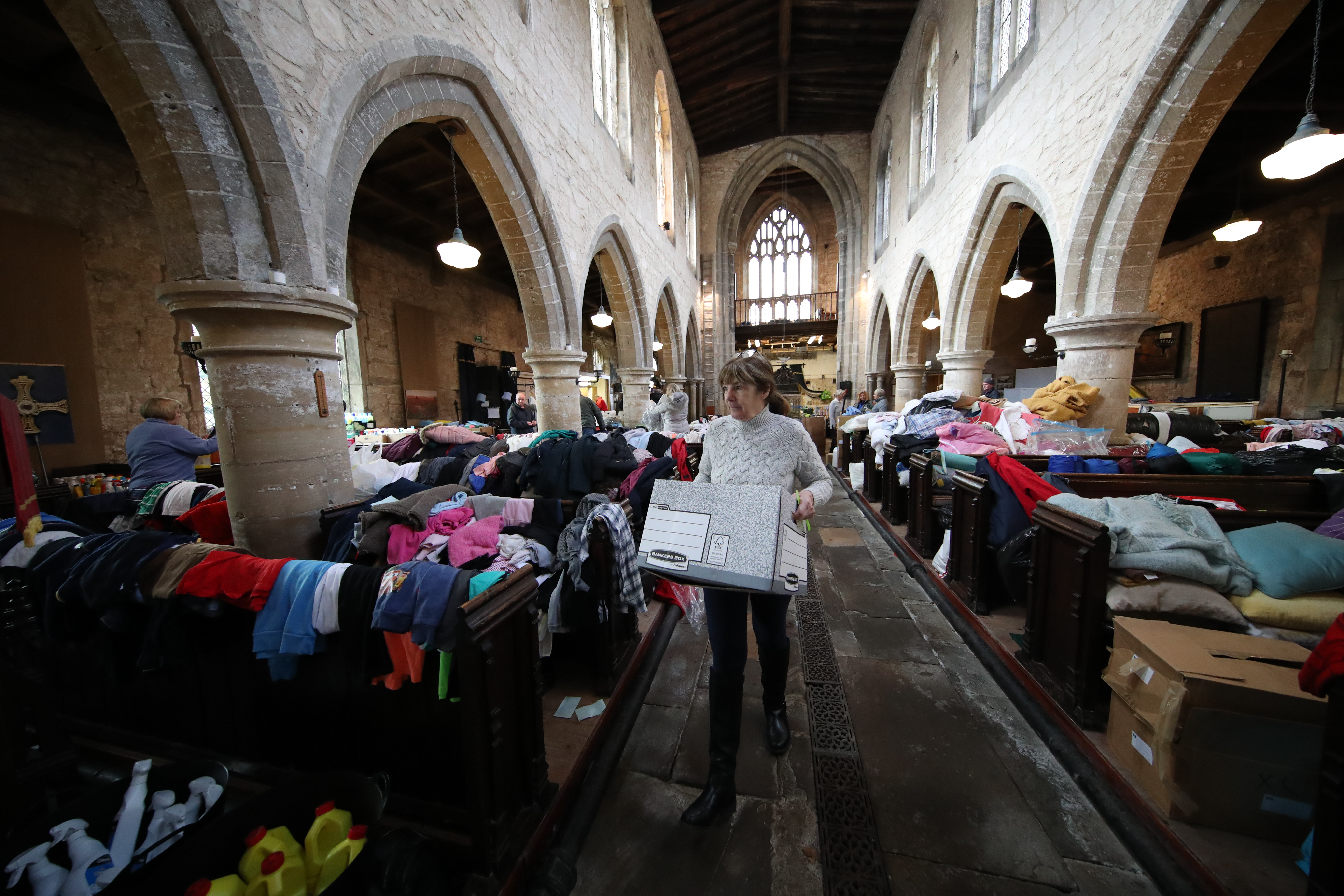So is this the Brexit election? Or the flooding election? Or the NHS election? When people are asked what matters most to the country, they say Brexit. When people are asked what matters to them most, however, they say the NHS, and then they say the cost of living. If they are standing in two feet of water in their kitchen, they will certainly say flooding. If the election turns out to be about the NHS and flooding, a hung Parliament is the best that Boris Johnson can hope for. Then bang goes his famous Brexit deal as he will not have a majority for it.
Calling an election in December was always a gamble with the weather, and not just because of the risk of flooding and the clear evidence that the Tories had reduced national investment in flood prevention, as part of their austerity programme. It was always a gamble because bad whether fills hospitals, and most hospitals are already as full to bursting as the dykes and ditches. Recent statistics show hospitals have never been under such pressure, with prolonged waiting lists, queues for available beds, indeed queues of ambulances waiting to deliver their precious load to the door of the local A and E.
But an even bigger gamble was with flu. Influenza cases always peak in mid-winter, even when mass vaccination has been successful. Each year the public health authorities try to predict what strain of influenza will be arriving on these shores come December, so they can order the right vaccines. Not every version of flu responds to every version of vaccines. So if they have chosen right, the impact of a flu semi-epidemic will be only severe. If they choose wrong, the million who have had the vaccine have in fact no protection, and we can expect a health service meltdown – live on television. On such fickle things can the fate of governments depend. And lives.
There is a sense in which Mr Johnson's real adversaries in this election are Theresa May and David Cameron, for they are the authors of the austerity policy which denuded public services, including the NHS – but not only that – of necessary funding. It was proclaimed as a policy for which there was no alternative, because of "the mess we inherited" from Labour and because of the danger, which now looks fantastical, that the British economy could go the way of Greece's.
In fact what had wrecked the public finances in the last years of Gordon Brown's government was the cost of rescuing the banking sector from disaster, which would have spelt disaster for everyone else too. The "mess we inherited" line was one of the cleverest and most disingenuous political slogans of all time. But it now dogs the footsteps of Boris Johnson, because he is taking the public finances in the same direction as Gordon Brown.
There are two other gambles he is taking. The first is that he can win over enough Brexit-supporting Labour voters in Midlands and Northern towns, especially the so-called Rugby League towns where that version of the game is preferred to Rugby Union. He needs those seats to compensate for the loss of anti-Brexit Tory voters in London, the South of England and Scotland.
Someone ought to have pointed out to him the origin of the split in rugby. Rugby League was a working-class game, played by professionals, begun in protest at and in opposition to the upper-middle class powers-that-be that controlled the strictly amateur game of Rugby Union – people exactly like Boris Johnson. Class conflict isn't dead. Rugby League towns are full of working class voters who would rather die in a ditch, to coin a phrase, than vote Tory. It is not entirely a coincidence that the Labour Party's spokespersons for television interviews are almost exclusively northern, with distinct northern accents. It sends a message.
The second gamble is that he can manage his mainly Thatcherite cabinet while increasing the "size of the State" – the proportion of the economy that is run by central or local government rather than the private sector. The Thatcherites are pro-Brexit precisely because, as Mrs T put it, she didn't embark on shrinking the state to see Brussels increasing it again.
The NHS is in this sense "run by the government"; so are flood defences. So is the police force, which lost 20,000 officers under previous Tory Governments which Mr Johnson proposes now to recruit. So is the state education system. All these he says he will pour money into. He says he is a One Nation Tory, which means supporting action by the State to reduce inequality. I believe him. He was a One Nation Mayor of London, and does not do ideology.
But he does not have a One Nation Cabinet. And a boat load of One Nation Tories were kicked out of the Party, by him, not long before he called an election. This is called being up the creek without a paddle. Thank the Lord, he must say to himself, that his opponent is only Jeremy Corbyn. That's one less problem to contend with. Perhaps.



 Loading ...
Loading ...
What do you think?
You can post as a subscriber user ...
User comments (0)